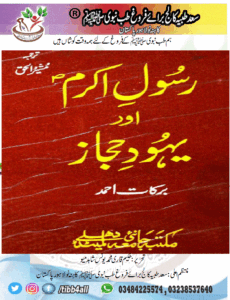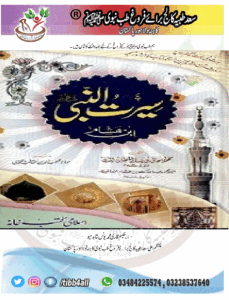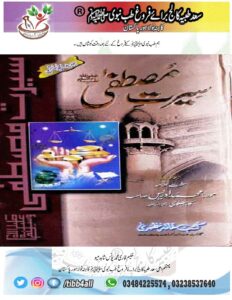Nicholas Culpepper, a Western pharmacologist
Leave it to the rebels of the world to influence history. When one thinks of the “bad boy” of the herbal world, one automatically thinks of Nicholas Culper, an English apostate and physician living in 17th-century England. He lived a tragically short life. Yet his short life was full of meaning. He was later known as the “People’s Herbalist”.
His most famous work was The English Physician, published in 1653, now known as Culpeper’s Herbal. This included the English translation of the Latin descriptions of various plants and their medicinal uses by the College of Physicians, thus making herbal remedies more accessible.
https://dunyakailm.com/%d9%86%da%a9%d9%88%d9%84%d8%b3-%da%a9%d9%84%d9%be%db%8c%d9%be% d8%b1/
A glimpse of childhood
The life of the garden herbalist was nothing short of a personal tragedy. Nicholas Culpepper was born on October 18, 1616, the only son of the young Reverend Nicholas Culpepper and his wife Mary. The family he was born into belonged to the aristocracy and owned land. At the time, this was a privilege that many were denied. His father died suddenly just two weeks before his birth. This was extremely unfortunate as the young priest had been appointed Lord of Oakley Manor only a few months earlier.
After her husband’s burial, Mary named her son Nicholas after the father she never met. She left Oakley Manor, and took young Nicholas with her to live at her family home in Isfield, Sussex.
Infant Nicholas was born in a time when medical knowledge was limited to a few privileged, licensed physicians. Like most children, Nicholas grew up fascinated by the wonders of the world. He was influenced by his grandfather, the Reverend William Attersall.
As the minister of St. Margaret’s Church, the old reverend was a stern and strict man. He was an intellectual, and thus highly valued education in the upbringing of his grandson. Reverend Uttersole had high ambitions for young Nicholas, including sending him to Cambridge, where he studied. Attersall was known as a devout purist, and wrote many biblical commentaries and religious works.
Education
Nicholas learned to read and write Latin and Greek from his grandfather. From an early age, Nicholas had a fascination with the stars and from the age of 10 he read books on astrology in his grandfather’s library. Later he discovered William Turner’s “Herbal.” This led to Nicholas’s interest in medicine as well as medicinal plants and herbs. He pored over the books in his grandfather’s library for hours, until the old reverend later limited his grandson’s reading material to the Bible.
Disliked religious experts
In 1632, when Clipper reached the age of 16, his grandfather sent him to Cambridge University. He had to study theology to fulfill his grandfather’s dreams of becoming a church minister, much to his dismay. The young rebel showed no interest in theology, and instead read the medical works of Hippocrates and Galen. He took out his frustration on his grandfather by drinking and smoking with his companions.
Culpeper falls madly in love with heiress Judith Rivers. Knowing that their relationship would prove too scandalous, as she was born into a rich and powerful family, the two hoped to escape. They hatched a plan where they would go to the Netherlands and settle there.
However, it was not to be. During a meeting in Lewes, his beloved’s coach was struck by lightning in a crazy twist of fate. She did not survive, and Culpeper was destroyed. Later he gave up his studies and became a recluse.
His personal tragedies continued. A year later, his mother died of breast cancer, although rumor has it that she died of shock upon discovering her only son’s affair with the young heiress. Culpeper refused to continue his studies at Cambridge because of this.
Naturally, his grandfather was disappointed with his grandson and separated him from the family fortune. Instead, the Reverend used his connections to set up his grandson with an apprenticeship with master apothecary, Daniel White. Since then, he has severed all ties with the defiant Culpeper.
Getting Started
..
For five years, Culpeper served as an apprentice. Much of this time was devoted to the cataloging of various medicinal herbs. However, he never lost his fascination with astrology and later admired the works of William the Astrologer. A chance meeting with astrologers fostered his interest in astrologer’s work, and later provided inspiration for the struggling apprentice.
Culpeper married 15-year-old Alice Field in 1639, who had recently inherited a substantial fortune from her wealthy merchant father. Because of this, Culpepper was able to quit his duties as an indentured apprentice and buy a house for himself and his wife. Later he opened a shop in the poor areas of London.
He also established himself as an astrologer, botanist and physician. This did not sit well with the Society of Apothecaries, as they believed that only those who were fully qualified would be able to practice the art. In their eyes this was complete and utter disobedience.
A man of the people
Soon, Culpeper gained a reputation as a healer for the poor. He sympathized with them in their plight, for they too had experienced their struggles. He was very active, seeing about 40 patients a day. They charged little or nothing for their services.
His grandfather died in May 1640. As a final slap in the face, the old Reverend’s will left him only 40 shillings. This did not come as a surprise to him, as Culpeper had only seen his grandfather as a rising authoritarian figure who treated him more like a burden than family.
war
During slavery in 1642, the English Civil War was upon them. Culpeper answered the call to arms, and wanted to fight in the front line for the Puritans. However, due to his medical knowledge, he was appointed as a field surgeon. He took only medicinal herbs with him. Soon, he was assigned to captain his infantry.
One day, during the battle, he was killed by a musket bullet. Although the Puritans were victorious that day, Culpeper’s days on the battlefield were over.
Affordable treatment for all
Working among the poor in London led Culpeper to believe that medical treatment should not be limited to the privileged class. This created controversy among his fellow doctors who considered him a traitor who used unorthodox methods in treating his patients.
Culpeper translated the Pharmacopoeia Londensis from Latin into English. It was disapproved by the Royal College of Physicians. Culpeper published a tome called A Physical Directory in 1649. It was his wish to make herbal medicine available to those who need it most.
Baghi Tabib later wrote and published many books, which are still useful in the medical field today. In 1651 he published a directory for midwives which complained about the lack of education available to midwives. His most famous work was The English Physician, published in 1653, now known as Culpeper’s Herbal. The book included English translations of Latin descriptions by the College of Physicians of various plants and their medicinal uses.
His health deteriorated due to an injury sustained in the battlefield. After a long battle with tuberculosis, Nicholas Culpeper died on January 10, 1654 at the age of just 38. He leaves behind his widow Alice. Although he fathered 7 children with her, only one child named Mary could outlive her father.








